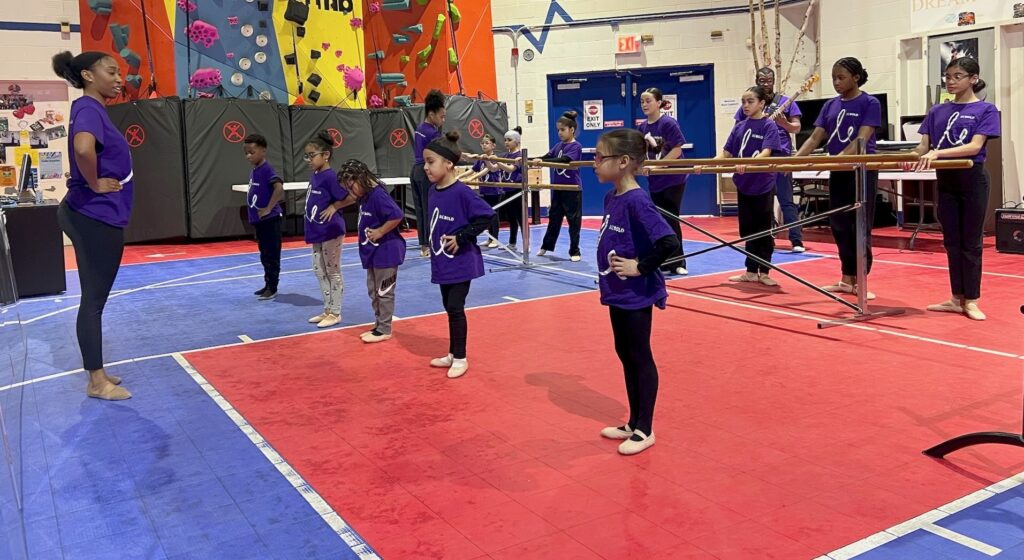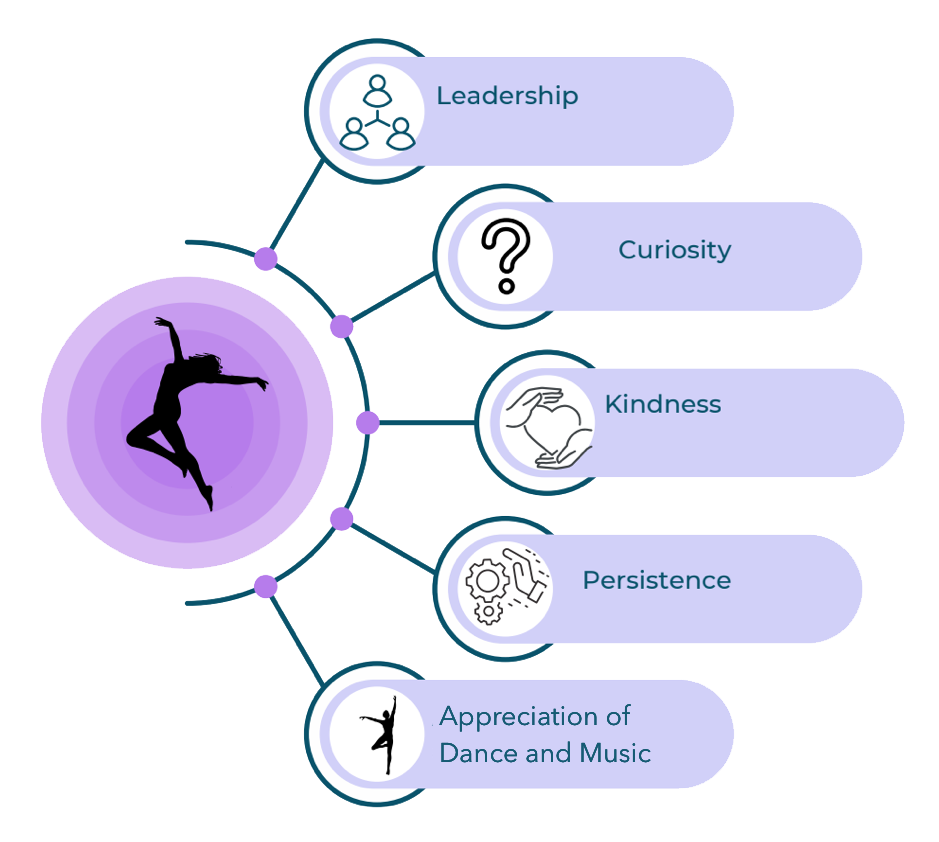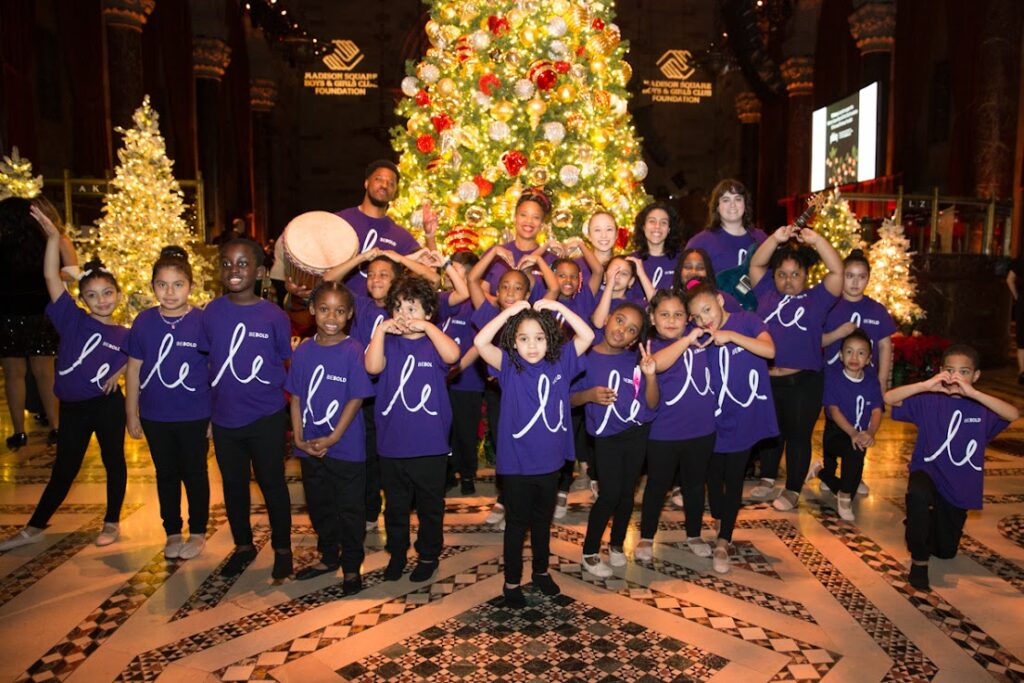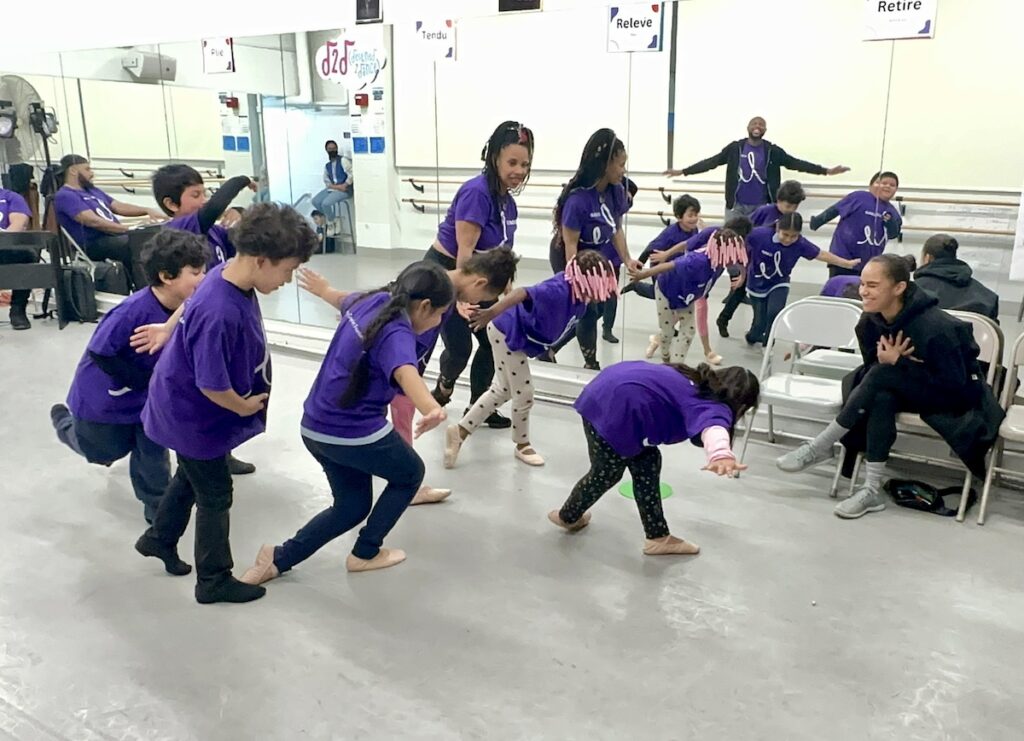Evaluation and Impact

To guide the impact measurement of BE BOLD, MCF engaged Gess LeBlanc, Ph.D. a leading developmental psychologist and co-founder of Hunter College’s Urban Center for Assessment, Research, and Evaluation. Dr. LeBlanc created an initial Logic Model, which helped articulate short-, intermediate-, and long-term goals for BE BOLD and identified how the specific program components address each goal.
Dr. LeBlanc has completed Year I of the BE BOLD evaluation, and the impact of its developmentally and culturally responsive teaching. The evaluation confirmed that BE BOLD students exhibited growth in desired mindsets and skills: leadership, curiosity, kindness, persistence, and appreciation of dance and music. These traits define the program’s Portrait of a BE BOLD graduate.

The skills and mindsets we seek to cultivate in youth in order to achieve our mission.

In addition, the evaluation confirmed that BE BOLD’s teaching artists reap benefits through our comprehensive teacher training workshops, ongoing support from MCF, and their valuable experiences working with children.

Based on the Year I evaluation’s findings, the BE BOLD framework for teaching and learning was deepened and refined with additional content designed to guide 5 to 7-year-olds in age-appropriate developmental instruction as well as providing improved support and instruction for the teaching artists. As a result, the revised BE BOLD framework document expanded from 29 to 90 pages.

MCF also values collaborative relationships with its Advisory Council and community partners. Feedback from these groups is actively sought and incorporated into the BE BOLD framework and training processes.
Dr. LeBlanc is currently conducting the second phase of his evaluation. He is working with our students, teaching artists, and site managers to examine individual participant experiences and the program’s overall impact.


